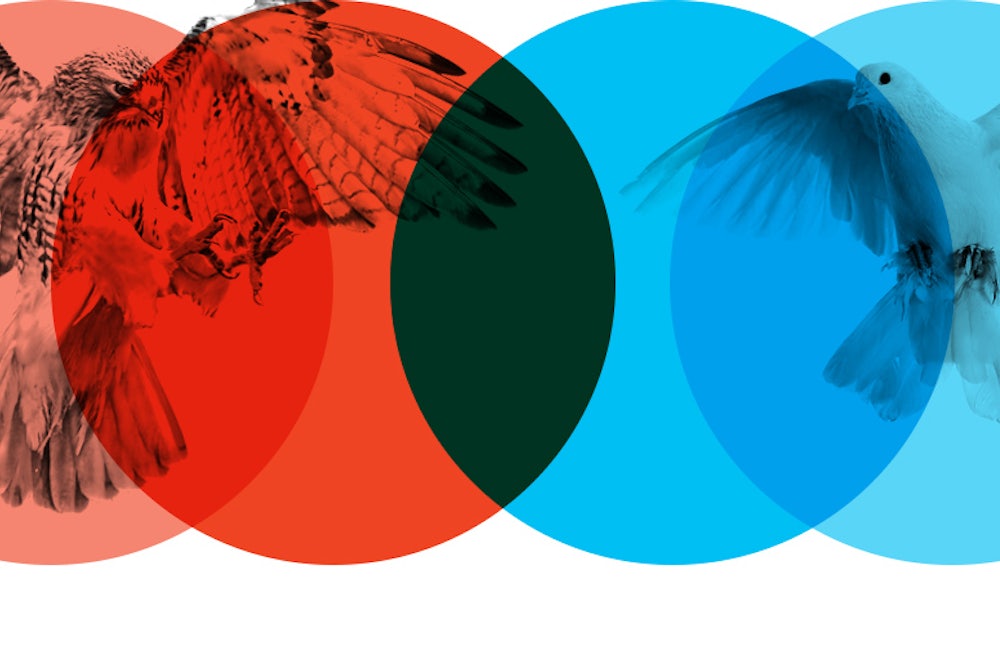According to the Oxford English Dictionary, the term “war hawk,” to mean “one who is eager for the fray,” first appeared in a letter Thomas Jefferson wrote to James Madison in 1798, to describe Federalists who wanted to go to war with France. Coining this metaphor earned Jefferson the derision of journalist H.L. Mencken, who credited him with conceiving “two of the best bugaboos of all time in his ‘war hawks’ and ‘monocrats.’” “Monocrats” didn’t catch on—but politicians from Henry Clay to Lyndon B. Johnson, Bill Clinton, and George W. Bush have been slapped with the label “hawk.”
The dove’s career as a symbol of peace is even older, dating back at least to the Epic of Gilgamesh and the Old Testament—both Gilgamesh and Noah send out a dove to look for dry land in a flood. It wasn’t until the Cuban missile crisis, though, that journalists began invoking the dove as the opposite of the hawk. The first usage, according to the OED, appears in the Saturday Evening Post in 1962: “The hawks favored an air strike to eliminate the Cuban missile bases... The doves opposed the air strikes and favored a blockade.”
The terms caught on in the 1960s, becoming common during the Vietnam War. (In 1968, DC Comics launched the comic-book series "Hawk and Dove," and a year later the Hawk 'n' Dove bar opened on Capitol Hill.) But with the more complicated foreign entanglements of 2013, the dichotomy no longer makes sense—we can’t even decide which label to apply to many politicians. The New York Times realized back in 1992, when Clinton was debating whether or not the U.S. should intervene in Bosnia: “It no longer makes any sense to speak of hawks and doves.” Yet we’ve held on to the irrelevant bird analogies—and even extended them to areas where they make even less sense, like the worlds of privacy and finance. Is a “privacy hawk” somehow predatory about protecting his personal information? Something’s gotten lost here. As Wonkblog has pointed out:
“The traditional labels could even be pernicious in the way they frame things, such that those who want to tighten policy are the Tough People Who Do What Needs to Be Done, and those who want to ease policy are hippie-dippies…. maybe instead of classifying central bankers by the variety of bird they most resemble, we should instead judge them on their ability to adapt their thinking to circumstance.”
We should discard these labels not just for the good of the English language, but for the sake of clear thinking. We've known, at least since George Orwell's "Politics and the English Language," that metaphors affect the way we think about politics, and research has confirmed as much: A study published last year found that people supported different strategies for crime prevention when they read a vignette in which crime was described as a “beast” or a “virus.” (Those who read the story comparing crime to a “beast ravaging the city” were far likelier to call for more law enforcement.) Muddled metaphors don’t help anyone.
If anyone wants to come up with a better metaphor: Here are some other—non-avian—predatory animals, and here are some gentle ones. Badgers and butterflies? Coyotes and lambs? Or maybe just drop the animal analogies altogether?
